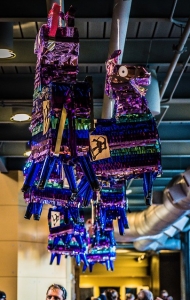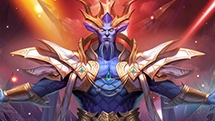By Terris Harned (NWOrpheus)
Foreword: This editorial article is written by an American, from an American point of view, about American topics. Things might be different where you are, if you’re not in America, so please don’t take any generalizations about American history as commentary about issues where you are if you’re outside the US. Thanks!
What have unions ever done for us?
If you’re in the US and work an 8 hour work day, you have labor unions to thank for it (if you work longer than that, then perhaps you should consider unionizing.) If you enjoy the security that an injury on the job won’t make you destitute, thanks to workman’s compensation, you have labor unions to thank for it. If you cringe when you hear about child labor in South America, or sweat shops in Asia, and think “I’m sure glad that stuff doesn’t happen in my country!” You have labor unions to thank for it.
If you have to stop and ask, “What have labor unions ever done for me?” chances are you’re either very, very rich, and hate labor unions because they cost you money, or you’re so privileged to live a comfortable life that you simply don’t understand how much unions have done to protect your way of life. Even if the company you work for isn’t unionized, the protections that all workers enjoy – such as unemployment insurance, the Occupational Safety and Health Administration (OSHA), federal minimum wages, and even that bank holiday that you might get to celebrate the first Monday of September, Labor Day – all came about because of unions.
It’s also worth noting that as of the 1980’s, union power began to decline. It is also around this time that wage disparity in the US began to increase to where it is today. As the influence of unions wanes in the United States, so too does the percentage of profits that go into worker’s paychecks.
Downsides
That’s not to say that unions haven’t seen some issues. As Lord Acton said in 1887, “Power tends to corrupt.” In the US, the ability to control people is power. The ability to control people often comes through money, and unions certainly control a great deal of it. The way that money is spent isn’t always in the best interest of employees, who pay into unions to create the pool of funds with which unions are meant to impact change.
Very recently, the United Auto Worker’s current and former union presidents were charged with embezzlement, according to NPR. In 1975, James Riddle Hoffa, who was at one time President of the International Brotherhood of Teamsters (IBT), disappeared under mysterious circumstances. It is alleged that organized crime (mafia) was involved in Hoffa’s disappearance, and it is believed that there are places where organized crime still influences unions.
Tech and Union Friction
Labor unions and technology have a longstanding history of not getting along. Union workers tend to be intrinsically anti-technology, as often the tech industry’s goal is automation, which in turn reduces the value of human workers. This obviously puts labor unions and technology at cross purposes. Freelance employees, who work on individual tasks and receive pay only for what they complete, are also difficult to unionize, and they are an integral part of the tech industry.
There is also a belief that unions generally are against innovation, especially where that innovation reduces workload for workers. After all, if there’s no work to do, then how are workers supposed to get paid? If workers aren’t getting paid, then how does the union get money? Whether this is true or not I cannot comment on, but it is something that is spoken of.
Tech Industry Labor Issues
Let’s face facts: one of the largest tech industries, and the largest entertainment industry in the world, is gaming. In the fiscal year ending in 2018, the CEO for Activision, Robert Kotick, earned over $30 million dollars in compensation. For reference, that is approximately 1,000 times the American median income. So one man made as much money as 1,000 other average US citizens. It was also a 306:1 ratio to the average Blizzard/Activision employee. That means Activision could have doubled the compensation of its employees across the board, and Robert Kotick still could have made $15 million dollars in compensation.
The gaming industry is also one that loves its crunch. If you’re unfamiliar with crunch, it’s the practice of having your workers putting in more than 40 hours per week for more than two weeks at a time. Sometimes employees are expected to work 7 days a week for up to 12 hours a day (84 hours/wk). Previously in the game industry, crunch was something that happened occasionally in order to meet a deadline, and usually only lasted a month or two. Increasingly, this is becoming standard practice.
A 2014 survey by the International Game Developers Association showed that around 81% of employees in the gaming industry had experienced crunch at some point in the two years prior. There are several articles from 2019 alone talking about the crunch experienced by Fortnite developers Epic Games – a company that made $3 billion dollars in profits last year.
Why employees are asked to work such excruciating hours when the company clearly has the revenue to hire more people is clear: employers put their incomes before the health and welfare of their employees, who they view as disposable resources.
Tim Sweeney, CEO of Epic Games, is 223 of 500 on the Bloomberg Billionaires Index (as of the writing of this article), by the way, with a net worth of $7.2 billion dollars. So far in 2019 he’s made over $50 million dollars. What is the likelihood that he works 84 hours per week for months on end?
Unionization efforts at Kickstarter
Employees of Kickstarter, probably the most well known and widely used crowdsourcing platform, began unionization efforts in March of 2019. It was also around this time that Aziz Hasan took over as CEO of Kickstarter, after the resignation of its former CEO, Kickstarter founder Perry Chen. Hasan has taken an anti-union stance since May of 2019, when he stated that Kickstarter would not voluntarily recognize unionization efforts.
More recently, Kickstarter has come under fire for the termination of two employees who were heavily involved with organizing the union: Clarissa Redwine and Taylor Moore. Both employees were offered what they claim is an inadequate severance package (one month’s pay). This severance was contingent on them signing an agreement to not speak poorly (a non-disparagement agreement) against Kickstarter, which both Redwine and Moore refused.
Kickstarter has made claims that these firings were unrelated to unionization efforts, citing expectations of employees regarding performance issues (at least in the case of Redwine) and poor performance reviews in a general manner. Redwine flatly denies these allegations:
Kickstarter’s management continues to state that I was fired for performance issues. I find this strange because I not only met but exceeded all performance metrics in Q2. I was great at my job. And I loved it.
— Clarissa Redwine Kickstarter United (@ClarissaRedwine) September 12, 2019
Clarissa Redwine has meanwhile filed a complaint with the National Labor Review Board about her termination, as well as the non-disparagement agreement that Kickstarter attempted to bribe her into signing.
We Stand in Solidarity
Wage disparity between game developers and other software engineers doing similar work can be quite large. Many speculate because of the “dream job” factor: being able to tell your friends that you’re a game designer is a little bit like being able to claim you’re a rock star. There is also a massive glut of employees in the field, which is one reason why employers feel they are able to treat their workers as disposable commodities. There is always another person eager to work insane hours for low pay, just so they can brag about their cool job.
MMOHuts and OnRPG’s creative content staff is a small and motley crew. We’re all considered freelancers, and a union just wouldn’t be practical for us. That being said, we do fully support unions, and condemn crunch and other unfair labor practices, as well as the wage disparities in the gaming industry.
Kickstarter United, in its efforts to organize with the Office of Professional Employees International Union, (OPEIU) could pave the way for other tech related industries, such as gaming, to organize unions and improve the working situation of its employees. The refusal by Kickstarter to recognize the union and this latest round of apparent and alleged union-busting behavior is prohibitive to those efforts.
We are calling upon Kickstarter to recognize the union, and to cease any alleged union busting activities. Because we’re acting in solidarity with Kickstarter United, and they have asked for the continued support of the creators who use the page, we will, for the time being, continue to do so. Should Kickstarter United send out a call for further action, we will consider that on a case by case basis. However, any new articles posted by us about Kickstarter or Kickstarter projects will be directed to this article to bring awareness to the issue.
Editor’s Note: The opinions here are those of the creative staff serving MMOHuts and OnRPG and may not reflect the views of our parent organization.






